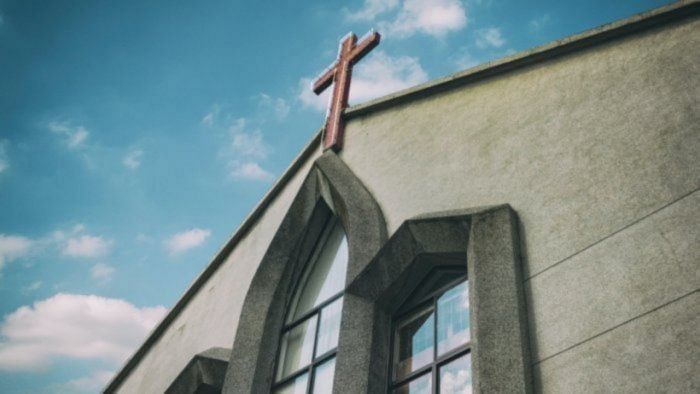
The recent attacks on churches and Christians in Chhattisgarh, Karnataka, and elsewhere post-Christmas and in the New Year indicate continued violence against the minority community with alarming regularity. Unfortunately, the state authorities have been found to be failing to provide a conducive environment of equality for all of its citizens.
In the latest incident, hundreds of villagers armed with sticks and iron rods marched into Sacred Heart Church in Narayanpur district, Chhattisgarh, and vandalised the church. Over 1000 indigenous people following the Christian faith were driven out of their homes in the villages near Narayanpur in the past couple of months.
A church in Periyapatna near Mysuru was allegedly vandalised in late December, where miscreants damaged the idol of Infant Jesus, ransacked the altar, and took away the offerings box.
Just before Christmas 2022, a man dressed as Santa Claus was attacked and thrashed by a mob in Vadodara, Gujarat.
These organised assaults by vigilante groups are patterned on fictitious claims that Hindus are being forcibly converted to Christianity through allurements, claims that have been denied repeatedly and have yet to be proven.
According to the United Christian Forum (UCF), an inter-denominational organisation fighting for the rights of Christians in India, the most hate crimes against Christians in 2022 took place in Uttar Pradesh, Chhattisgarh, and Jharkhand. UP led the table with 121 hate crimes, followed by Chhatisgarh with 85 and Jharkhand with 39. Karnataka and Tamil Nadu were next, with 27 and 26 hate crimes, respectively.
The attacks against Christians have increased after several states passed anti-conversion laws that impose fines and jail terms for anyone convicted of a forced conversion.
In light of the increased attacks, Rev. Dr Peter Machado of the National Solidarity Forum, Rev. Vijayesh Lal of the Evangelical Fellowship of India, and others filed a Public Interest Litigation (PIL) in the top court, seeking directions to stop the alleged violence against the members of the Christian community in the country. The central government has denied allegations of an increase in attacks on Christians in India and termed the media reports on this “unfounded” and “baseless.”
Calling forceful religious conversions a “very serious issue”, the Supreme Court, in November, issued a notice to the Union government to make its stand clear on the issue and to take steps to control forced religious conversions.
It is pertinent to point out here that Article 25 of India’s constitution guarantees the freedom to openly practice, profess, and propagate any religion without disturbing the public order.
So, here’s the question: Is there scientific evidence that forced conversions are taking place, if they are as reported? How many FIRs have been registered, and have there been any convictions?
Take the case of Uttar Pradesh, where hate crimes against Christians are the highest. None of the 507 accused (since the Prohibition of Illegal Religious Conversion Act came into force in 2020) have been convicted so far, Asian News International reported in November.
In Karnataka, where the anti-conversion law came into effect in May 2022, the police have booked nine cases so far, of which final reports have been submitted to the court in two, the Deccan Herald reported, citing the home minister of Karnataka.
There could be a few stray cases of conversion in every religion, but is the bogey of forced conversions a myth or reality?
Father Anand Mathew, a Varanasi-based priest engaged in interfaith dialogue, said many Christians have been harassed and persecuted in the name of the anti-conversion law. “But until today, no one has been found guilty of this. No conviction has taken place,” he told Crux, the online news portal related to the Catholic church.
“So this is a myth created for which, unfortunately, the Supreme Court, the country’s highest institution, and the judges there have also fallen victim,” the priest explained.
The Archbishop of Bengaluru, Peter Machado has repeatedly stated that they do not support forced conversions, but making wild accusations against Christians that are motivated and unproven is also not good.
“What is at stake is not conversion but the right to freedom of conscience as well as the right to preach, profess, and propagate one’s religion, subject to public order, morals, and health as enunciated in the Constitution.”
It is sad that this anti-Christian hysteria is spreading across India, a country with a rich and ancient culture where people have lived together in harmony for centuries. It is sad that the very act of worship has become dangerous despite constitutional provisions for freedom of religion. As the New Year unfolds, can Christians look ahead with hope? For love, not hate; for peace, not violence; and to pray without fear?